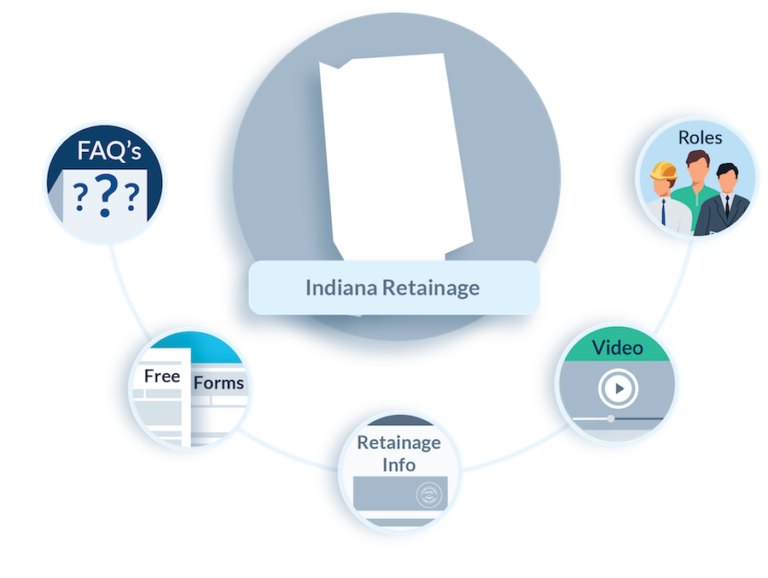Indiana Retainage Requirements
- Private Jobs
- Public Jobs
- Top Links
Retainage Limit
Not Regulated by State Law
Pay Period
Not Regulated by State Law
There's No Process to Recover
N/A
Not Held In Escrow
In Indiana, contractors and owners do not need to hold retainage funds in a separate escrow account.
6 Percent
Whether retainage may be withheld may depend on the value of the project. Generally, there are 2 options: the public entity may withhold no more than 6% until the work is 50% complete, or it may withhold no more than 3% until the work is substantially complete.
61 Day Pay Period
All retainage funds must be released to the contractor within 61 days following the date of substantial completion if contractor has fulfilled all obligations under the contract.
There is a Process to Recover
Yes, must file a verified claim with public entity and provide copy to contractor within 60 days of last furnishing.
Retainage serves two general purposes: (1) To provide an incentive to the contractor or subcontractor to complete the project; and (2) To give the owner some protection against problems like liens, contractual defaults, delays, and more. In most states, laws exist to regulate how the parties use the retainage concept, mostly protecting some parties against abuse of the tool from others. The following are resources, legal information, and frequently asked questions about Indiana’s retainage requirements. The Indiana retainage statutes are reproduced below on this page.

